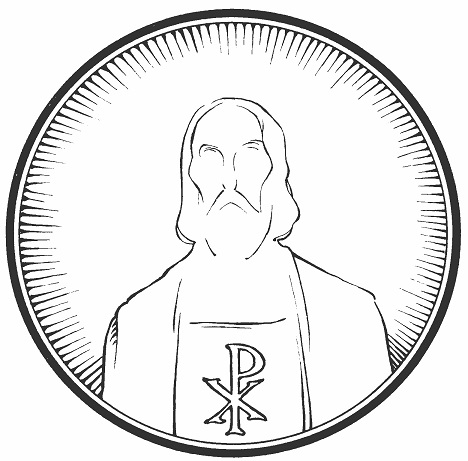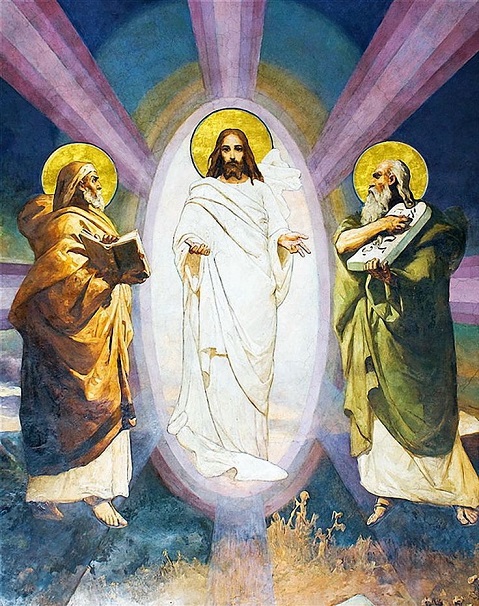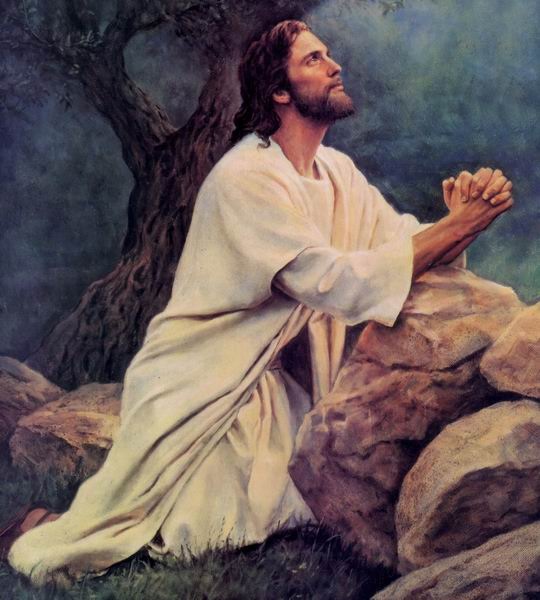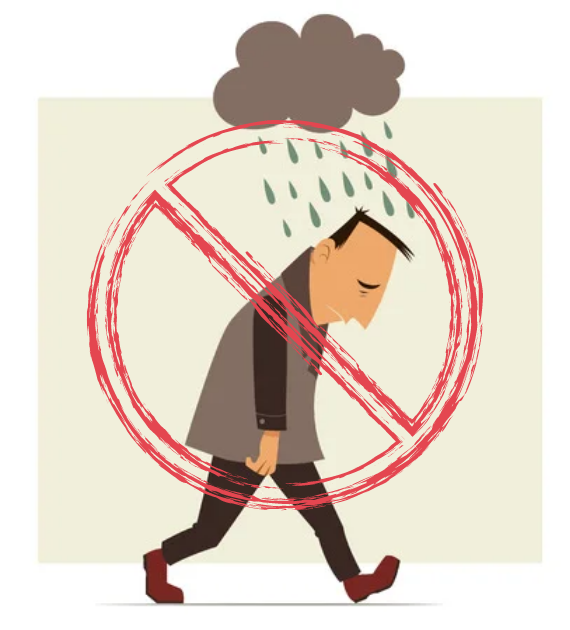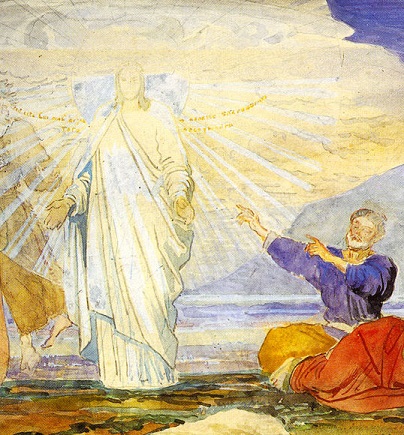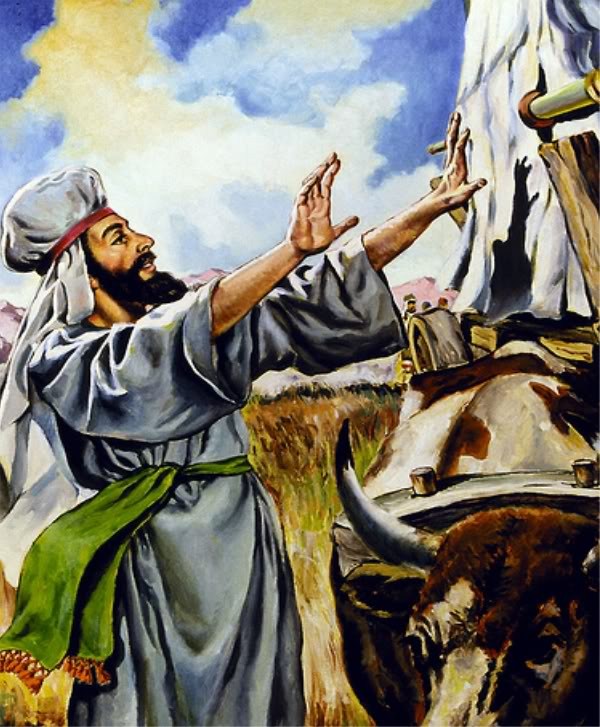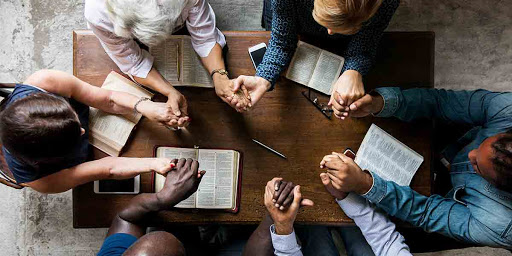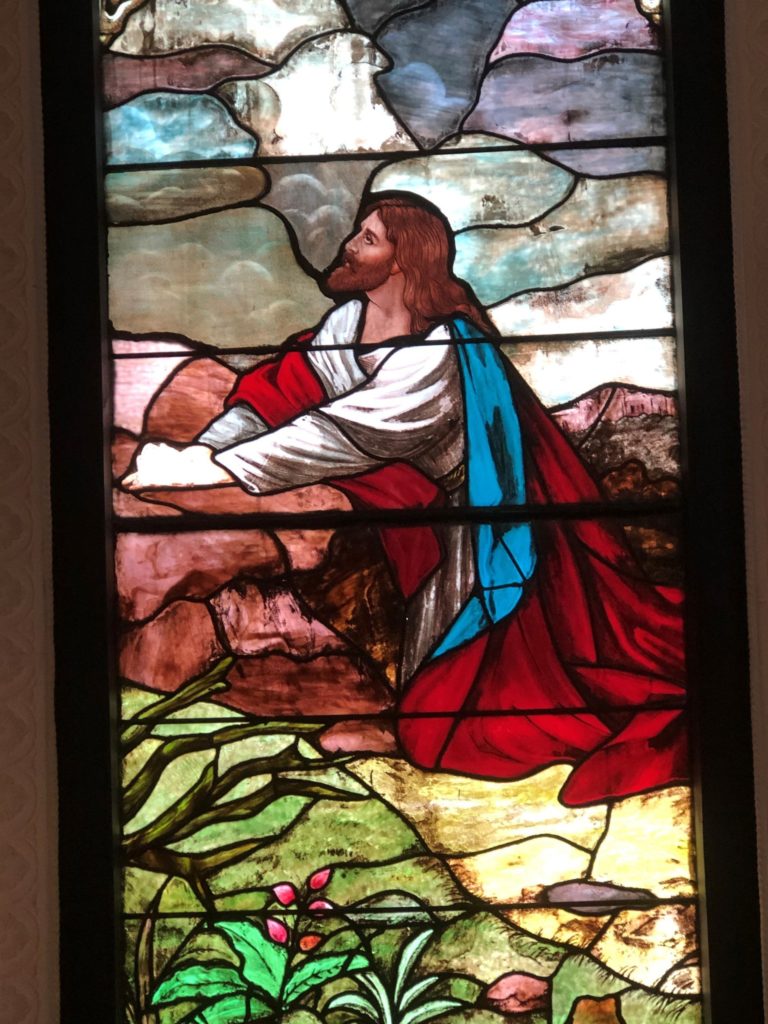Readings: Exodus 34:29-35 | 2 Peter 1:16-21 | Matthew 17:1-9
Text: Matthew 17:1-9

Everyone hopes for heaven on earth. What can we do to hasten its arrival? What’s the “secret sauce” that nobody before has managed to discover, or how can I adjust my living so that I can be free of want?
The twentieth century was full of human schemes to create heaven on earth. Russia, China, North Korea, Cuba, and Vietnam all thought that Communism was the answer. But even in our own country, the past several years have witnessed the belief that the “right” politicians will make things right: some by Republicans, some by Democrats. The 21st century also continues in this line, with the notion of the Great Reset, which will bring about a new world order of sorts. However, In every case, people came closer to giving people hell than heaven. These schemes were not ill conceived or poorly organized. The schemes of humans always fail to bring heaven to earth, no matter how well planned, or efficiently organized.
While we might think that if we could just avoid the programs of those who are attempting to impose their view of an earthly heaven upon us, we would be able to create it for ourselves. We think that if we could just create the perfect family with children who are always obedient, and get the perfect job, which pays a large salary and does not require any work, we would be just fine. It would be like heaven. Some people think that if they check out of their responsibilities and move to a red state, that that would be heaven on earth.
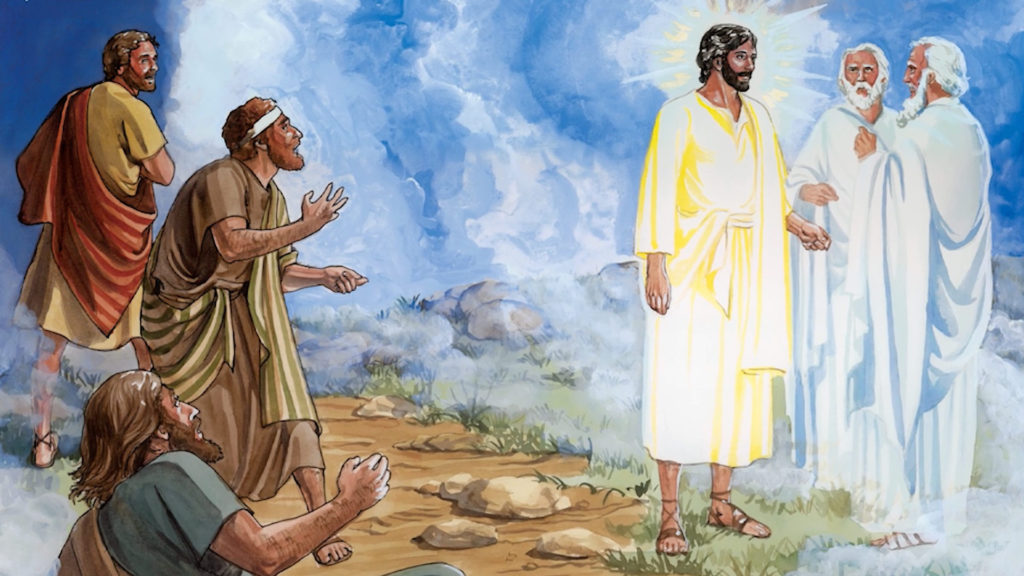
Peter expressed that same wish in the Gospel today: 4 And Peter said to Jesus, “Lord, it is good that we are here. If you wish, I will make three tents here, one for you and one for Moses and one for Elijah.” If we could only just stay here a while, that would be perfect.
But the problem with creating heaven on earth is me, not the stuff or the people around me. My sin and its guilt thwart heaven’s earthly arrival every time. Communism is poisoned by human greed—both a sinner’s desire for more and the selfishness of sinners in power. The problem isn’t one party against another, or even an independent party; it’s that every single representative is horribly flawed by sin. George Soros might have some grand ideas for society, but they cannot accommodate a country, or state, or city full of wicked sinners. And for all those who have hoped for the “perfect” church community where everyone is loving, the music is just what they wanted, and every need is abundantly met—is chasing after the wind.
However, our hope for heaven on earth alerts us to a desire that has been implanted in us by our Creator. Ecclesiastes 3, just after the famous “a time for everything” portion says, “He has made everything beautiful in its time. Also, he has put eternity into man’s heart, yet so that he cannot find out what God has done from the beginning to the end.” (Eccl. 3:11) God made us for perfect fellowship with Him. He created us to inherit eternal life with Him. He designed us to experience a perfect home in His presence. Our desire is not wrong, but because of sin, it is misplaced. The desire of itself is in harmony with our true nature as creatures of God. We just cannot create what we so much desire to have.
5 He was still speaking when, behold, a bright cloud overshadowed them, and a voice from the cloud said, “This is my beloved Son, with whom I am well pleased; listen to him.” 6 When the disciples heard this, they fell on their faces and were terrified. 7 But Jesus came and touched them, saying, “Rise, and have no fear.” 8 And when they lifted up their eyes, they saw no one but Jesus only.
In trying to create what we desire; our focus is wrong. It is fatally set upon our doing and our activity and our definition of heaven. God is the Creator of heaven and earth. Therefore, He is the one who can grant us heaven on earth. He does so in a way that appears to us to be so unspectacular and even unattractive. Yes, Peter, James, and John were awe-struck by the sight of the Transfiguration, but that was not to remain. It was a blessed vision to which they were eyewitnesses. But, the balance of their life was spent in ordinary life—in conversations, in Peter caring for his wife, in James suffering martyrdom, and John being exiled to Patmos. And all of them fled when the hour had come for Jesus to be glorified in the eyes of the Father.
Yet, in that most unpleasant—some might even say hellish—episode of Jesus’ passion, He was gaining heaven for us. Heaven for those who deserve it least. A Kingdom of Heaven, that can be found even in the midst of a fractured, dying, Satan-infested world.

“Thy Kingdom come,” we pray. The Father answers this prayer not with beatific visions on a mountain top, but through faith in the Word of His Son: “Listen to Him.” He does it by granting us the body and blood of the Lord upon our altars. The church sings together with angels and archangels and with all the company of heaven at the celebration of the Sacrament of the Altar. Together with that heavenly host—with Moses and Elijah—to confess that heaven is where the Body of the Lord has come. If Christ’s body is here, then all the heavenly hosts must be present, even though unseen. Heaven bursts the bonds of mere sight through the gracious presence of the Lord’s Body among us.
Heaven on earth is attainable by our most fervent efforts. Heaven on earth comes only where God gives it to us as a gift. The 4th century bishop, John Chrysostom wrote:
“This mystery of the body of Christ makes earth become a heaven to you. Open only once the gates of heaven and look in; no, rather not of heaven, but of the heaven of heavens; and then you will see what I have been speaking of. For what is most precious of all there, I will show you upon earth. For as in royal palaces, what is most glorious of all is not the walls, nor golden roofs, but the person of the king sitting on the throne. So likewise in heaven the body of the King is most glorious. But this, you are now permitted to see upon earth. For it is not angels, nor archangels, nor heavens and heavens of heavens, that I show you, but their Lord and Owner. Don’t you perceive how that which is more precious than all things is seen on earth; and not merely seen, but also touched; and not only touched, but also eaten; and after receiving it you go home?
“Cleanse your soul then and prepare your mind for the reception of these mysteries. For if you were entrusted to carry a king’s child with the robes, the purple, and the diadem, you would cast away all earthly things. But now we are considering no child of man no matter how royal, but the only-begotten Son of God Himself, whom you received. Do you not thrill with awe and cast away the love of all earthly things, and have no boast but that with which to adorn yourself? Or do you still look toward the earthly, and love money, and pant after gold? What pardon then can you have? What excuse could you offer? But don’t you know that all this worldly luxury is loathsome to your Lord? Was it not for you that at His birth He was laid in a manger, and took to Himself a mother of low estate? Did He not for this say to him that was seeking gain, ‘The Son of Man has nowhere to lay his head’? (Matt 8:20). John Chrysostom, Homilies on 1 Corinthians, 24.8
Nonetheless, the will of the Father is for you and I to hear the voice of His Son. We hear it as the Spirit enables us, and in that faith-filled hearing, we see what heaven really is: The very presence of God in the midst of His people. There, we see a God who reconciles Himself through the blood of Jesus, who hears our prayers, who cares for us in every need. Gathered as we are in the Body of Jesus, we pray together, “Our Father,” alongside the rest of the holy Church. If we are looking for heaven on earth, look no further than where the Father has sent His Son. In Him, we have peace with God and confidence in faith. The Holy Spirit seeks to preserve each of us in this true faith, until the day comes where there is no more room for doubt.
In the Name + of Jesus. Amen.



